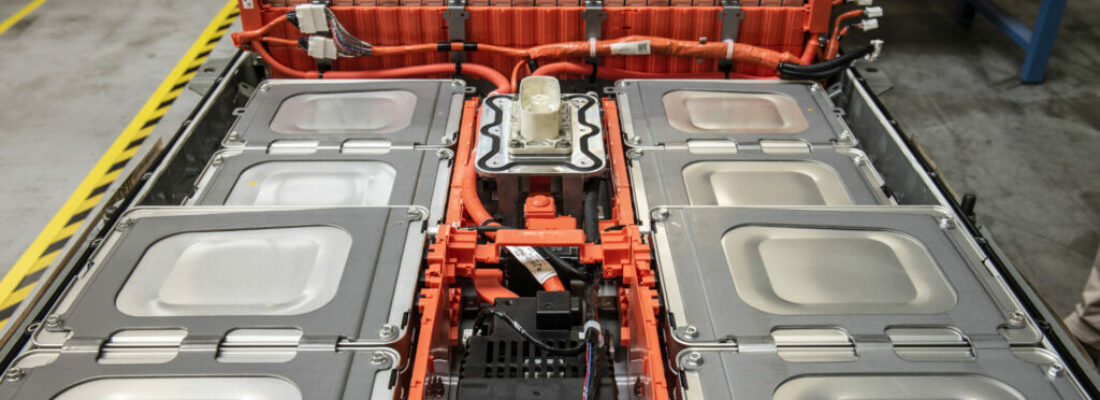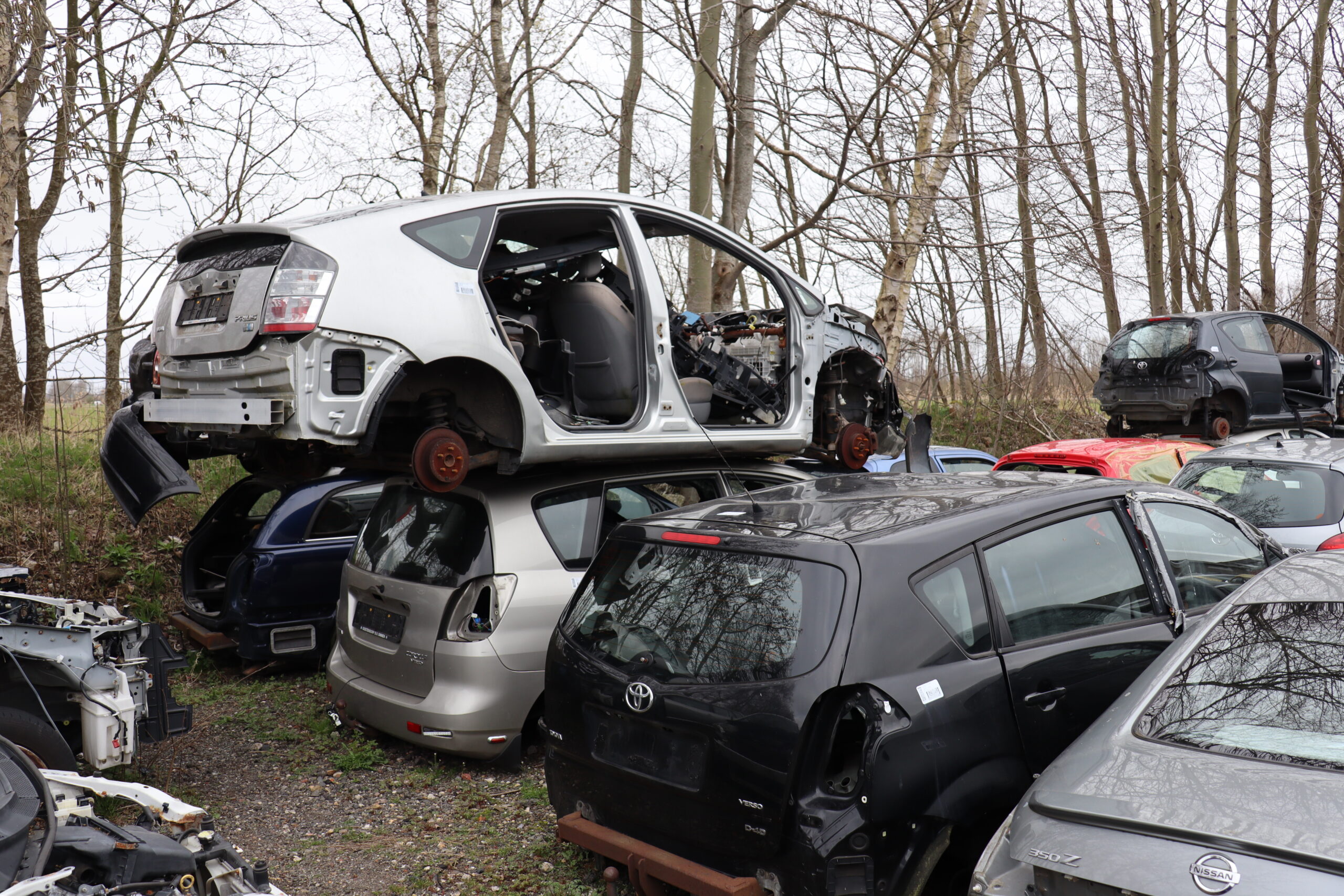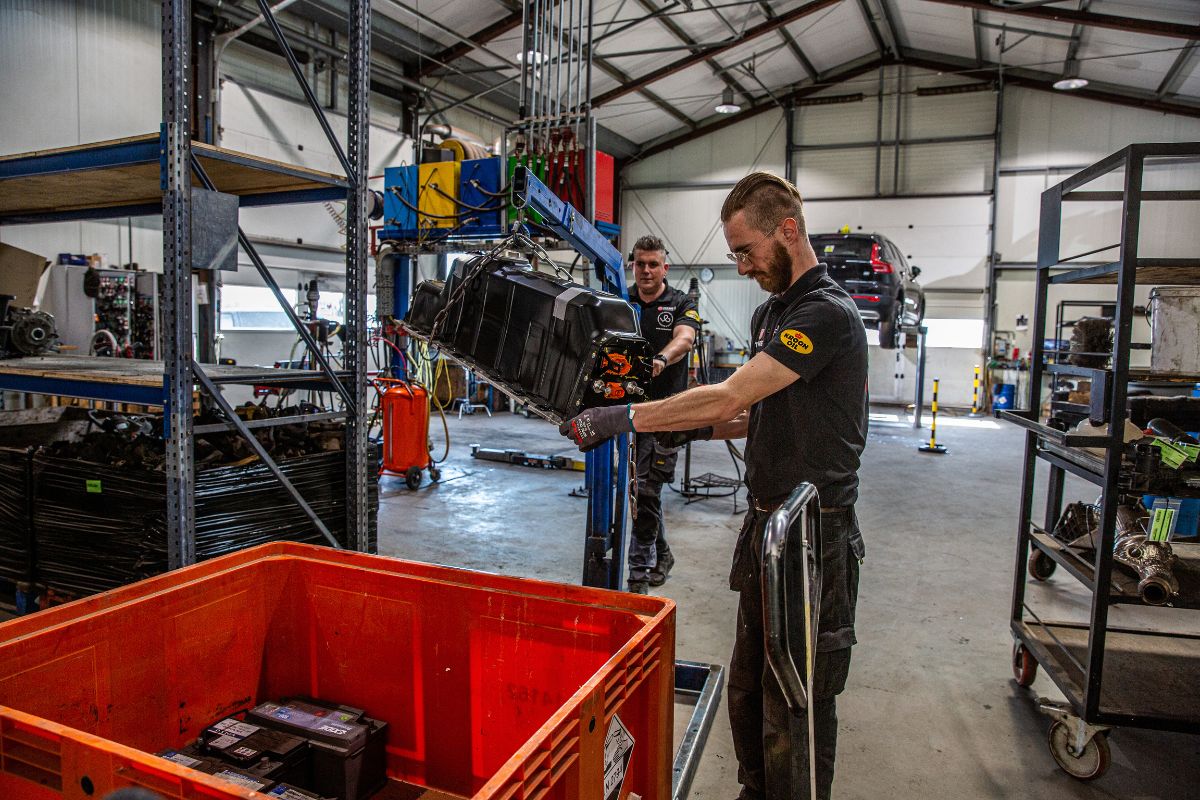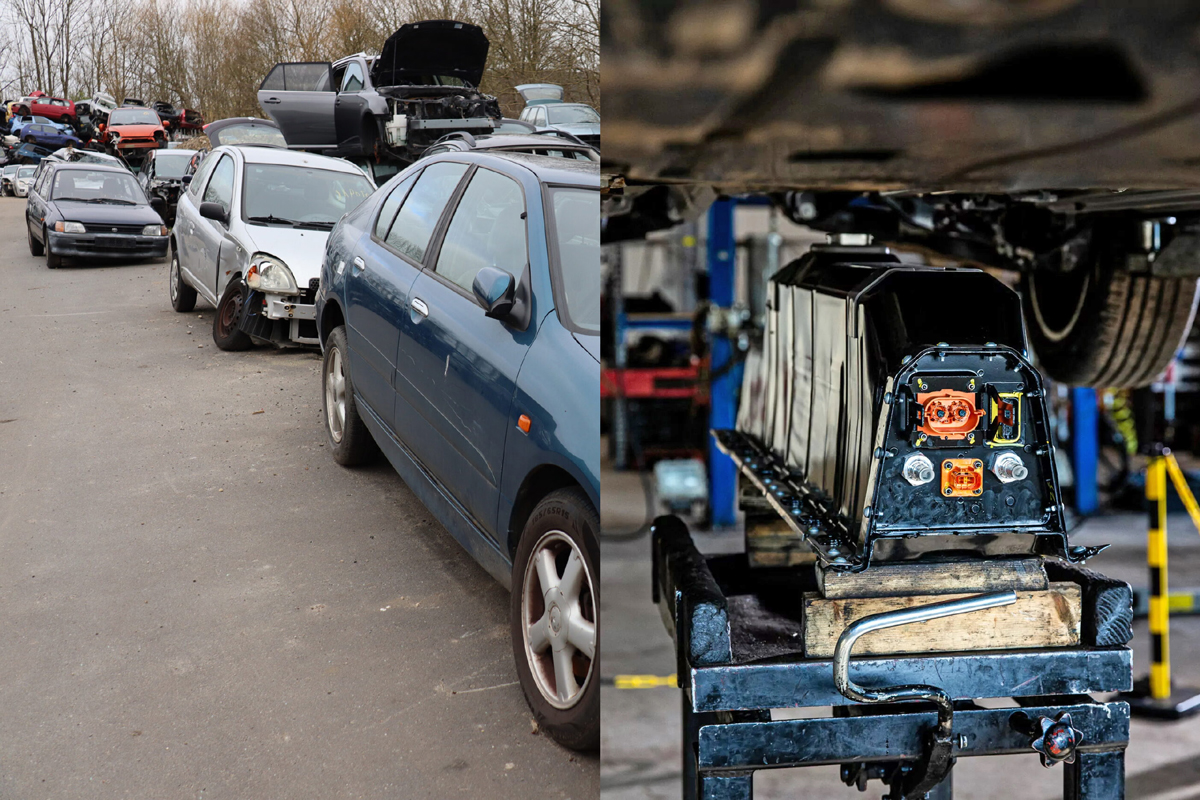The quick growth for electric cars has yet to come, but the regulations for battery recycling are already here. Large car brands such as Volkswagen, Mercedes-Benz and Hyundai participate in the collective execution of the regulations: the ARN Management Plan. Discussion and cooperation with ARN have resulted in great innovations. “Exchange and cooperation help us achieve practical solutions.”
Tekst Ralph Rozema
There are great examples of the results of cooperation with, for example, Volkswagen or Mitsubishi. “Take, for instance, the transport and packaging of batteries,” says Ella theunissen, EV Battery Coordinator at ARN. “If a battery poses any risks, it requires extra-safe packaging, which is more expensive. This is not the case for every discarded battery, however. How can we efficiently organise this? That is one of the issues.”
“This is a new area for everyone, no matter if you are dealing with discarded BMW or Mercedes-Benz batteries. And it is not just about reuse and recycling itself, but also about the logistics that come with this. It is important to remember that this involves the transport of hazardous goods by road,” Janet Kes adds. The Battery Manager at ARN continues: “What technology is most suitable for which discarded batteries and how do you organise the transportation as efficiently as possible? We discuss this with importers and collection agencies. This results in insights that allow everyone to work more effectively.”
The interview takes place at the ARN office, a stone’s throw away from the A2 between Utrecht and Amsterdam. At the moment, there is still background noise from cars with combustion engines. Thanks to electric traffic, this will decrease significantly in the future. But the environment requires more than that: it needs reuse and recycling.
Energy storage for bungalow park
There are currently two options for discarded traction batteries: a second life or recycling. Options for a second life include energy storage, for example. In Zeeland, a bungalow park uses old batteries to provide energy. They are no longer suitable for reuse in a car, but offer an excellent solution for the single bungalows. In Germany, Volkswagen wants to transform old batteries into charging stations along highways. These are useful if you have to travel long distances and want to charge your car during your journey.
In case of recycling, all materials are separately reclaimed from batteries and given a new destination. “There is a lot of profit to be had here, and the expected larger scale will mature the market,” Kes says. The focus of manufacturers is to make sure the batteries in electric cars last as long as possible; an increased lifespan. “That is great, of course, but after such a long period of use, they will be less useful for a second life. That is why the expectation is that recycling will become increasingly important.”
Car manufacturers take the lead
The focus of the car manufacturers is shifting to electric cars more and more. Take Volkswagen, with their massive factory for electric cars in Zwickau. Top executive Thomas Ulbrich, responsible for the production of electric cars, gave German Chancellor Merkel a personal tour through the factory. This goes to show the importance politics attributes to this subject.
In Salzgitter, near Braunschweig, Volkswagen has a trial factory for battery recycling, close to the factory where batteries are assembled. This way, the materials can be processed in one go. In 2020, they expect to recycle the batteries of three-thousand cars. The recycling percentage will then be 72%, but the objective is to quickly increase this to 97%. In addition to this factory, Volkswagen wants to open regional factories for battery recycling in the future.
Renault, Toyota and others are working on their own initiatives, often in cooperation with third parties.
Every battery type to the right processor
It is great to see car manufacturers set up their own initiatives for battery recycling. This does not, however, solve the issue of logistics – and the safety of this – at a local level. In the Netherlands, ARN still coordinates the collection and processing of electric car batteries for most car importers. Participation is not obligatory, but it is very convenient for most importers and other companies. “ARN determines the best place for the collected discarded batteries to go for processing,” Teunissen explains. Not every processor is interested in each battery type. This results in a need for custom solutions where we combine supply and demand. Of course, we also ensure correct reporting to the government.
The collection is performed by Van Peperzeel, which collects the discarded batteries and transports them to the right processor. If batteries are still suitable for a second life, they are brought to one of three companies that turn them into new products and applications; this way, they also become the new producer of the battery. Recycling currently often happens in Germany or France. “If the number of discarded batteries increases, building a large processing facility in the Netherlands might be an interesting option.”
Batteries have ever-increasing lifespans
The various brands are fully focussed on development to increase the lifespan of batteries. “Where ARN used to collect full battery packages, we are increasingly making the switch to collecting modules,” Theunissen tells us. The battery consists of a series or set of modules. Replacing the defective modules results in an increased lifespan for the battery. This requires knowledge and expertise from specially-trained high-voltage engineers. A discipline that is available to more and more car dealerships. “In turn, we help to make the collection and processing process as efficient and safe as possible. By sharing knowledge in this area, we can future-proof the entire process.”
If the electric car fleet continues to grow, Europe may face a shortage of recycling capacity. One solution could be that manufacturers will take care of this process themselves. “We are happy to see this development. The objective is to make the recycling process as complete and sustainable as possible, and having the manufacturers take the lead is a great advantage. And we are happy to keep contributing to solutions.”
Click here if you want to know more about the Management of Batteries and Accumulators Decree (Bbb) or the ARN Management Plan.



